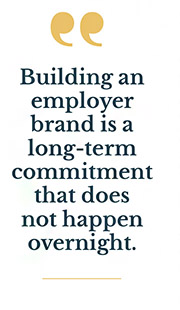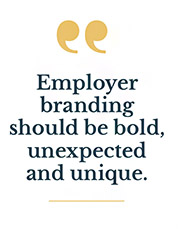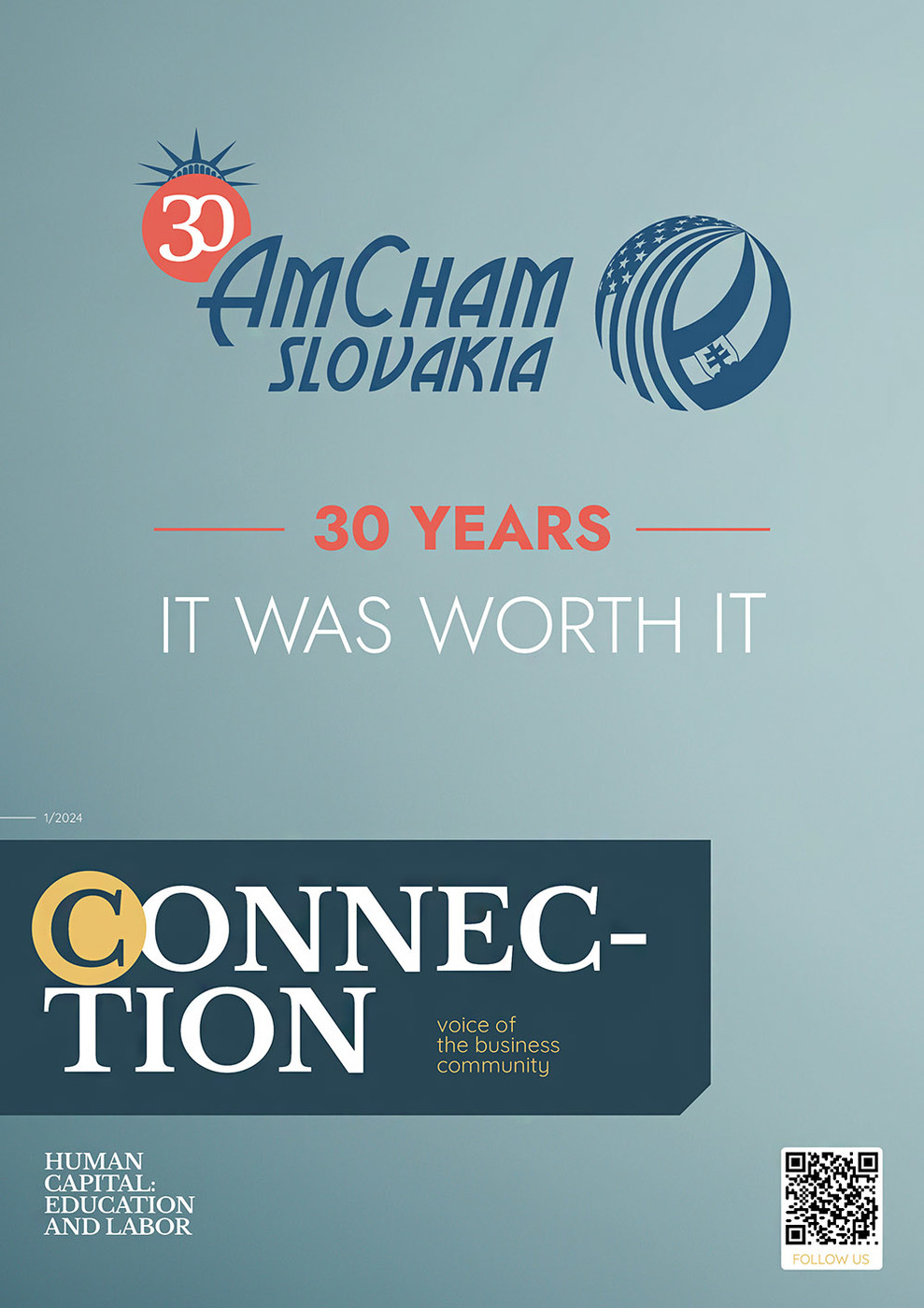From a marketing perspective, this is the best - and also probably the worst - time to get new recruits interested in a company. On the one hand, there are plenty of platforms for companies to attract the attention of jobseekers. On the other hand, companies need a deep understanding of who they are and how to present their brand in an attractive way. In other words, building an employer brand is a long-term commitment that does not happen overnight. Companies need a complex strategy to help them to identify their identity. Once that is done, building the company’s reputation follows.
Why is company identity crucial in employer branding?
As presented by Ruchika and Prasad in Global Business Review, employer branding creates an anticipatory psychological contract between the company and its candidates. This means that with good employer branding, a job seeker already has a relationship with the company before he/she/they apply. Once in the job, this relationship changes, based on the employee’s experiences. If the company lives up to the image it presents to the outside world, the psychological contract is likely to get stronger and more positive. However, if the company paints themselves in a positive light only for the sake of recruiting applicants, this relationship will deteriorate.
As mentioned above, identifying the company’s identity is key and makes building the company’s reputation much easier. Auditing the company’s brand, conducting surveys among employees and getting their feedback will all help to identify the company’s identity.
 Make your EVP valuable
Make your EVP valuable
The company’s identity, together with its mission, values and culture make up the EVP (employer value proposition). How to make it unique?
According to Universum, 55% of the World’s Most Attractive Employers list “inspiring purpose” as the key element of their EVP. But if more than half of them do, is it really that unique? Looking at job offers, companies are shifting from offering benefits such as coffee, sport cards and team building to more abstract ones such as diversity, environmental protection and work-life balance. This is largely because Millennials and Generation Z have different expectations of their employers. A study conducted by McKinsey & Co found out that having opportunities to grow, overall positive atmosphere at work and innovative approach are factors that influence the Millennials’ choice of employer. Similarly, according to the ThoughtExchange report, being valued is important to 96% of Gen Z employees, 80% of them prefer to work for a company that allows them to develop new skill sets rather than focus on one skill and 79% want their manager to care about their personal development as much as their professional development.
Do not be afraid to stand out
Although the whole point of employer branding is to stand out and attract job seekers, creating or completely changing a brand can seem like a daunting task. Often, even with all the data available from employees, companies are afraid to step out of their comfort zone and look at their brand from the perspective of their target audience.
But that is exactly what should happen. If I were a Millennial or a Gen Z job seeker, how would I like to be approached? What platforms would I use? What kind of campaigns would I find interesting enough to not scroll through right away? These are but a few questions that the marketing department - or a marketing agency working with HR - should consider. It would be illogical and uneconomical to invest in an employer branding campaign without knowing the habits, interests and preferences of the target audience.
 And, as mentioned in the opening lines of this article, today’s world is marked by information overload. Therefore, building employer branding should be bold, unexpected and unique. As Michal Pastier points out in his book - instead of looking at how other companies are doing it and copying what is already on the market - companies should look inwards and choose what is different and interesting.
And, as mentioned in the opening lines of this article, today’s world is marked by information overload. Therefore, building employer branding should be bold, unexpected and unique. As Michal Pastier points out in his book - instead of looking at how other companies are doing it and copying what is already on the market - companies should look inwards and choose what is different and interesting.
Then it’s up to marketing to turn this into a creative employer branding strategy that grabs the attention of the target audience and helps the company build its reputation.
In conclusion
There are plenty of ways to approach employer branding creatively. With that said, you need relevant data to base the employer branding strategy on. Without data, employer branding is just a balloon floating freely across online and offline marketing platforms with no one to grab it and say “this is what I’m looking for”. Data is what grounds even the most creative ideas, giving them a solid foundation and putting your brand within reach. With Millennials set to make up 75% of the workforce by 2025 and Generation Z 27% by the same year, it is time to meet them halfway. Let your reputation precede you and take a step towards modern employer branding that leaves a lasting positive impression.
****
Sources:
- journals.sagepub.com/doi/pdf/10.1177/0972150917713897
- flexjobs.com/employer-blog/build-employer-brand-easy-steps/
- zipdo.co/statistics/employer-branding/
- forbes.com/sites/forbescoachescouncil/2022/06/27/millennials-and-gen-z-now-is-the-time-to-reshape-businesses-to-harness-their-power/
- qureos.com/hiring-guide/gen-z-statistics
Mária Duffeková, Senior Copywriter, Promiseo



Follow us